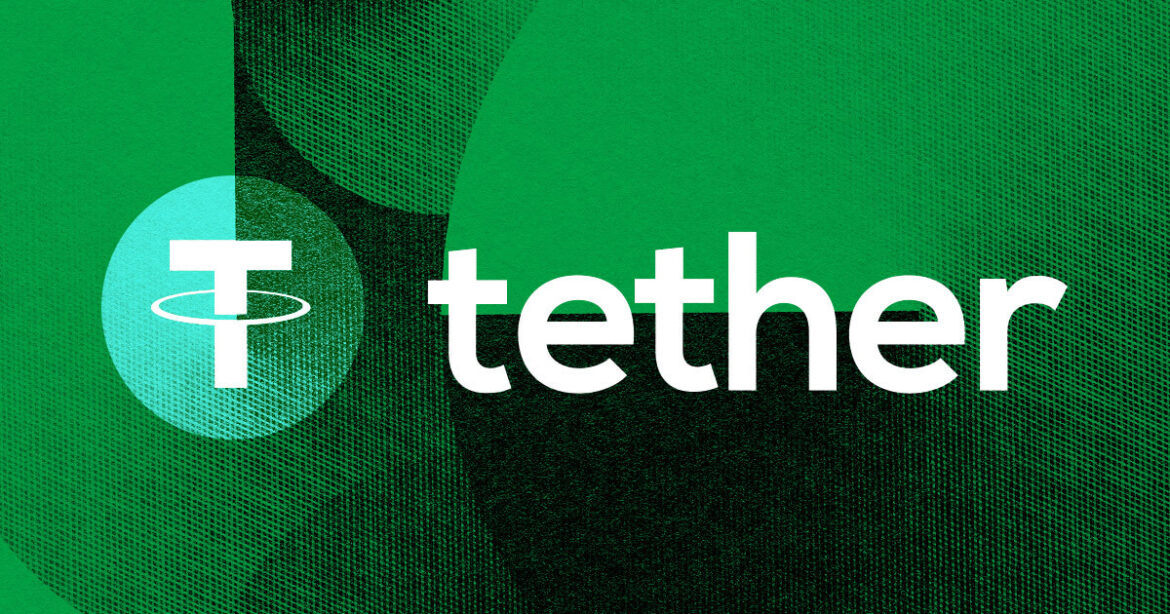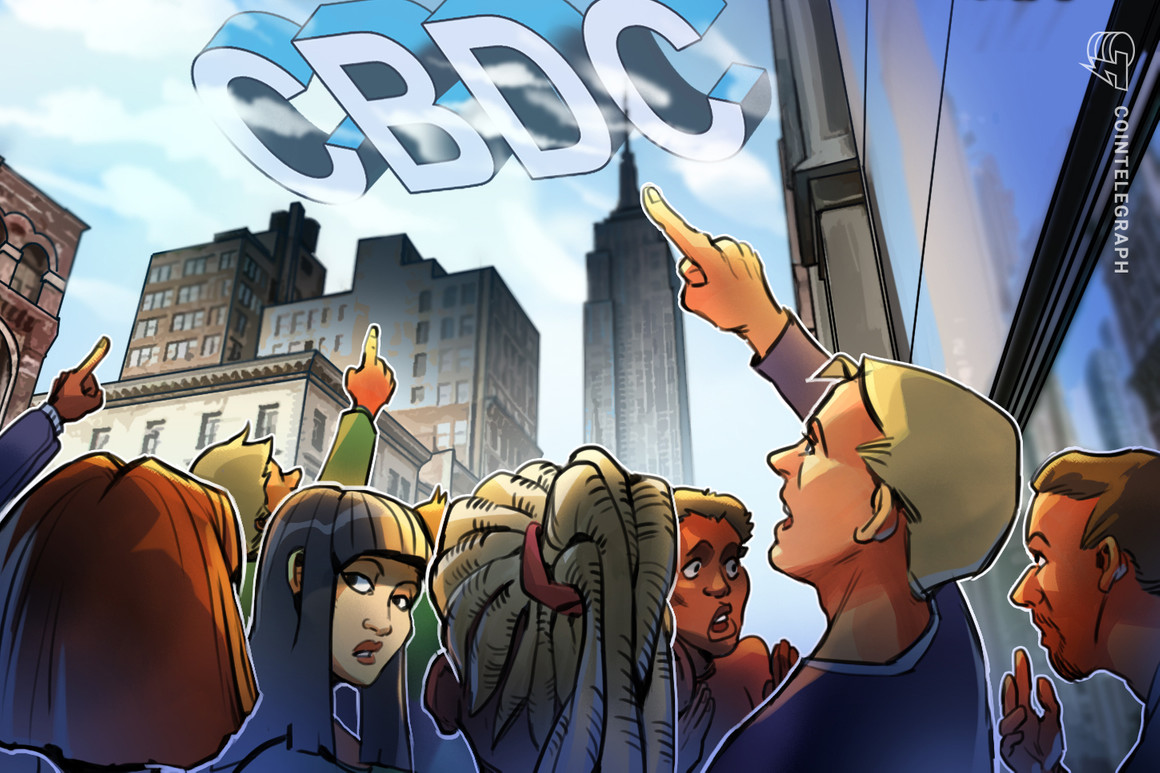 U.S. presidential candidate Robert F. Kennedy Jr. (RFK Jr.) says bitcoin is the offramp from central banks’ “money printing machine.” Emphasizing that bitcoin is a “hard currency,” he stressed the importance of making the cryptocurrency available to the American public. “Transactional freedom is as important as freedom of speech and you only get that from […]
U.S. presidential candidate Robert F. Kennedy Jr. (RFK Jr.) says bitcoin is the offramp from central banks’ “money printing machine.” Emphasizing that bitcoin is a “hard currency,” he stressed the importance of making the cryptocurrency available to the American public. “Transactional freedom is as important as freedom of speech and you only get that from […]
Source link
Freedom
Lejilex and Crypto Freedom Alliance of Texas Sue SEC for Unlawfully Targeting the Digital Asset Industry
 Lejilex and the Crypto Freedom Alliance of Texas, a crypto nonprofit, have teamed up to introduce a complaint against the actions of the SEC towards actors in the digital asset industry in America. The complaint alleges that the SEC has no regulatory powers over these crypto companies, having usurped functions not given to it by […]
Lejilex and the Crypto Freedom Alliance of Texas, a crypto nonprofit, have teamed up to introduce a complaint against the actions of the SEC towards actors in the digital asset industry in America. The complaint alleges that the SEC has no regulatory powers over these crypto companies, having usurped functions not given to it by […]
Source link
Prominent crypto lawyer criticizes SEC overreach in Ripple lawsuit, advocates for financial freedom

John Deaton, a well-known crypto lawyer, said that regulatory actions against the crypto industry point to a significant government overreach and intrusion into the private sector.
Deaton made the statement on social media on Jan. 22, where he specifically called out the actions of various federal agencies, including the SEC, FBI, EPA, and the Federal Reserve — likening their operations to an Orwellian ‘Big Brother’ scenario.
His comments reflect a growing sentiment within the cryptocurrency community about the balance between regulation and financial liberty.
Ripple lawsuit
Deaton’s criticism was particularly pointed towards the SEC’s lawsuit against Ripple Labs Inc., CEO Brad Garlinghouse, and co-founder Chris Larsen. Initiated in December 2020, the lawsuit accused Ripple of conducting an unregistered securities offering through the sale of XRP.
He criticized the SEC’s broad classification of XRP tokens as illegal securities, suggesting it was an unconstitutional expansion of the watchdog’s authority. Deaton added that the dismissal of charges against Brad Garlinghouse and Chris Larsen demonstrates the regulator’s misuse of its power.
Deaton also pointed out that before the lawsuit, major players like Coinbase and MoneyGram had conducted due diligence on XRP without any objections from the SEC, which indicates a lack of clarity and consistency in the regulator’s approach toward cryptocurrencies.
The recent developments in the case bolster his argument. Judge Analisa Torres partially ruled in favor of Ripple Labs, determining that XRP sales on digital asset exchanges do not constitute a security.
Deaton has suggested that the lawsuit was used as a weapon against Ripple, a stance he has maintained since filing a Writ of Mandamus against the SEC shortly after the lawsuit was announced.
Attack on financial freedom
Deaton, who has initiated legal action against the SEC on behalf of XRP investors, users, and developers, explained that his lawsuit was motivated by the broader implications of the SEC’s actions rather than personal financial interest.
He stated that his holdings in XRP are minimal compared to other investments like Bitcoin and Ethereum. For Deaton and 75,000 others, the lawsuit represents an assault on a crucial liberty: financial freedom. He argued that in America, people should have the autonomy to own legal assets beneficial to their lives without government interference.
The attorney also criticized the Accredited Investor Rule, viewing it as a tool for the elite to restrict financial mobility for the majority of the population. He said the rule is a mechanism to maintain dependency on the government and restrict access to financial opportunities.
“Barbenheimer” isn’t the only phenomenon at the July box office.
Over the last four weeks, Angel Studios’ “Sound of Freedom,” an indie film that has drawn the support of former President Donald Trump and other conservatives, has captured nearly $150 million in domestic ticket sales.
The figure may seem small against Hollywood blockbuster performances from Warner Bros.’ “Barbie” and Universal’s “The Super Mario Bros.,” each of which has grossed several hundred million dollars, but it’s a solid theatrical run for a film that only cost $14.5 million to make.
It’s especially impressive considering Paramount’s Tom Cruise vehicle “Mission: Impossible — Dead Reckoning Part One” has tallied less than $140 million since its July 12 release and Warner Bros.’ DC Comics tentpole “The Flash” which barely topped $100 million domestically.
“Sound of Freedom” is also on the heels of Disney’s “Indiana Jones and the Dial of Destiny,” which has generated around $167 million in box-office grosses in the U.S. and Canada.
“Angel Studios deserves a tremendous amount of credit for designing and executing one of the most unexpected indie box office runs in years,” said Shawn Robbins, chief analyst at BoxOffice.com.
“Sound of Freedom,” which opened over the July 4th holiday weekend to the tune of $14.2 million, saw ticket sales exceed its debut during its second and third weekend in theaters, a rarity in Hollywood. Over the last two weekends, ticket sales drops for the movie have been under 40%.
Typically, blockbuster features will see at least 50% drops each week, receiving diminishing returns until the film finishes its run in theaters.
The slow fall for “Sound of Freedom” shows that audiences who may have missed out on the flick when it first opened have heard enough positive word of mouth about it to flock to cinemas weeks later.
In fact, the film initially only ran in around 2,600 theaters and has grown to more than 3,400 over the last few weeks. For comparison, both “Mission: Impossible — Dead Reckoning Part One” and “Indiana Jones and the Dial of Destiny” opened in more than 4,000 locations, according to Comscore data.
“‘Sound of Freedom’ is a summer movie success story that wasn’t even on the radar just a few short weeks ago,” said Paul Dergarabedian, senior media analyst at Comscore. “[It] has become one of the most talked about movies of the summer a film [and its] box office revenue has surpassed that of titles with much bigger stars, brands, and budgets.”
“Sound of Freedom” centers on Tim Ballard (Jim Caviezel), a character inspired by a real-life government agent who quits his job to rescue a young girl from sex traffickers in Colombia.
Part of “Sound of Freedom’s” box-office success has been a campaign from filmmakers to urge moviegoers to buy tickets that can be claimed online for future screenings by those who may not be able to afford them. Angel Studios calls the model “pay it forward” and has sold nearly 14 million of these tickets since the film’s release, according to the studio’s website.
“‘Sound of Freedom’s’ sustained success goes to show that grassroots campaigning still has a sizeable impact in this day and age and that the movie’s core audience remains overlooked and underserved,” Robbins said.
Angel Studios’ post-promotion method isn’t the only unique aspect of its business. The studio crowdfunded $5 million in order to distribute the film after 20th Century Fox, which previously held the rights to it, was bought by the Walt Disney Co. and shelved its release. “Sound of Freedom” wrapped filming in 2018.
The anti-sex trafficking thriller has struck a chord with older audiences, many of whom have not been back to theaters since before the Covid pandemic. It has also become popular in conservative political circles. Trump hosted a private screening of the film at his New Jersey-based golf club last month.
Also in attendance were Steve Bannon, Trump’s former chief strategist; Kari Lake, a former gubernatorial candidate from Arizona who backed Trump’s claims about election fraud during the last presidential election; and Jack Posobiec, an activist and TV correspondent who promoted the debunked claim that Democrats were using a pizzeria in Washington for a child sex ring.
House Speaker Kevin McCarthy, R-Calif., also held a screening of the film last week for members of Congress on both sides of the aisle.
“Often movies come along that fill a void in the marketplace,” Dergarabedian said, echoing Robbin’s comments about underserved theatrical audiences. “‘Sound of Freedom’ benefitted not only from this but also by providing a non-typical summer style movie experience.”
Disclosure: Comcast is the parent company of NBCUniversal and CNBC.
Tether stops fighting freedom of information request, allows disclosure of reserve data
What is CryptoSlate Alpha?
A web3 membership designed to empower you with cutting-edge insights and knowledge. Learn more ›
Connected to Alpha
Welcome! 👋 You are connected to CryptoSlate Alpha. To manage your wallet connection, click the button below.
Oops…you must lock a minimum of 20,000 ACS
If you don’t have enough, buy ACS on the following exchanges:
Connect via Access Protocol
Access Protocol is a web3 monetization paywall. When users stake ACS, they can access paywalled content. Learn more ›
Disclaimer: By choosing to lock your ACS tokens with CryptoSlate, you accept and recognize that you will be bound by the terms and conditions of your third-party digital wallet provider, as well as any applicable terms and conditions of the Access Foundation. CryptoSlate shall have no responsibility or liability with regard to the provision, access, use, locking, security, integrity, value, or legal status of your ACS Tokens or your digital wallet, including any losses associated with your ACS tokens. It is solely your responsibility to assume the risks associated with locking your ACS tokens with CryptoSlate. For more information, visit our terms page.
![]()
The nonprofit Human Rights Foundation (HRF) has launched a central bank digital currency (CBDC) tracker, the organization announced at the same Oslo Freedom Forum event it hosts. The online tracker has published educational materials and a tip line. It is expected to become fully functional by year-end.
The tracker came out of an eight-month fellowship at the HRF that was announced in January. The fellowship was awarded to Cato Institute policy analyst Nick Anthony, researcher Janine Romer and podcaster Matthew Mezinskis. The Cato Institute is an ardent opponent of CBDCs.
HRF chief strategy officer Alex Gladstein said in a promotional video about the tracker:
“It’s going to be an online resource that describes the progress of central bank digital currencies around the world, especially in authoritarian countries, and the civil liberties red flags and risks that come along with this.”
Because a CBDC is a central bank liability, it “creates a direct link between citizens and the central bank,” which “opens the door to so many human rights concerns when it comes to the adoption of CBDCs,” according to the CBDC tracker on the HRF website.
The first phase of the @HRF CBDC Tracker is now live!
Just announced at the Oslo Freedom Forum, the full resource will be unveiled at the end of the year.
For now, check out the landing page (phase 1) here: pic.twitter.com/FHB9DWXDqs
— Nick Anthony (@EconWithNick) June 13, 2023
The HRF is an active supporter of Bitcoin (BTC). Gladstein has told Cointelegraph in the past that Bitcoin “fixes democracy” and could disincentivize wars.
Related: 7 central banks and BIS continue examination of ongoing policy issues for retail CBDC
According to the unrelated, open-source CBDC Tracker website, the vast majority of the world’s central banks are at some stage of CBDC research, but only three CBDCs have been launched so far. Those are the Bahamas’ Sand Dollar, the Jamaican Jam-Dex and the eNaira in Nigeria. The website also lists 14 pilot projects, including China’s digital yuan. According to HRF, the digital yuan already has 300 million users.
Magazine: Are CBDCs kryptonite for crypto?






